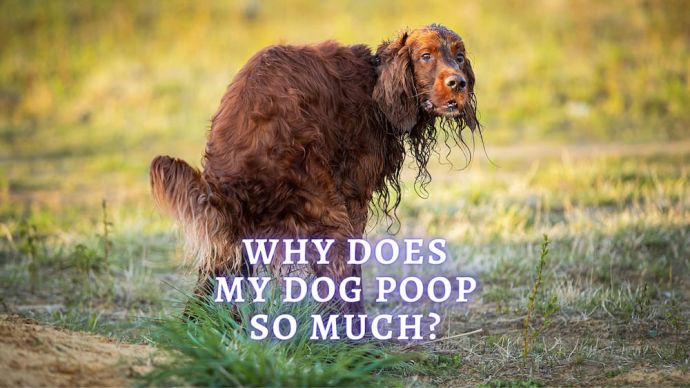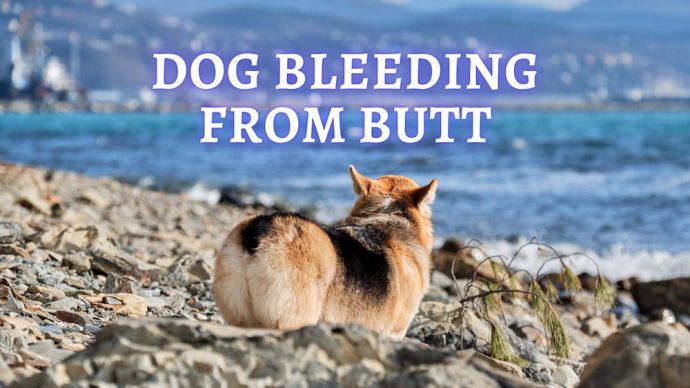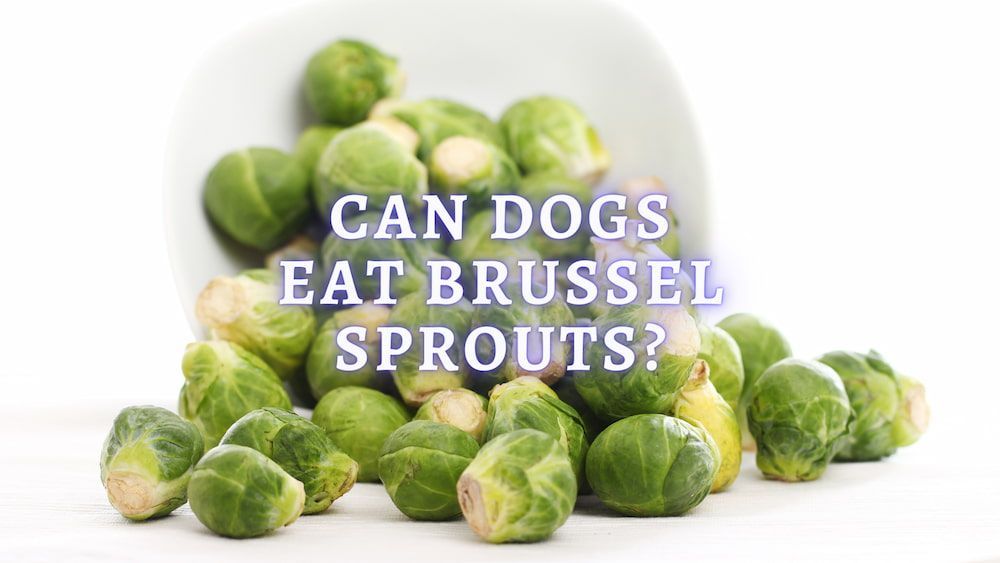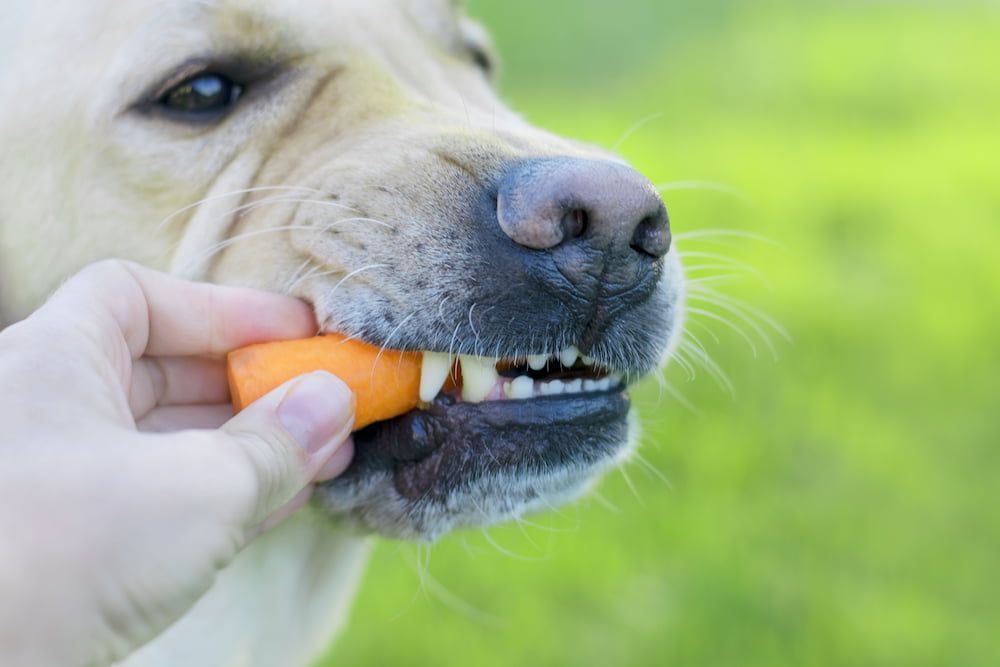Can Dogs Eat Brussel Sprouts? Benefits and Risks of Feeding Your Dog Brussel Sprout
Written by:
Author: Marissa Prizio
Marissa Prizio attended the University of New Hampshire and earned a bachelor's degree in biomedical Animal Science. Marissa has always enjoyed writing; she was even mixing literature classes into her science major in college. During her writing career, she has edited eBooks, written for a variety of websites, and created audio-visual courses for sustainability.
View all 36 articlesLearn about our editorial process and veterinary review board.
Viewed: 168
Updated on: 07/07/2022
When it comes to enhancing our health, most people turn to vegetables. Green leafy vegetables, like Brussels sprouts, are known for their nutritious benefits for humans, but what about dogs? Our canine companions have evolved a long way from their wild ancestors, and so has their diet.
It is always best to research if you are looking to enhance your dog’s diet and you have come to the right place. Here’s an in-depth look into adding Brussels sprouts and other vegetables to a dog’s diet for pup owners, so you don’t have to wonder, “can dogs eat Brussel sprouts?”
Can dogs eat vegetables?
Unlike cats, dogs are not obligate carnivores. While it is important for them to have meat in their diet, they also require a variety of other nutrient-dense foods. If you look at a can of dog food or a bag of kibble, you will notice that there are quite a few plant-based ingredients, which is especially true for higher-quality dog food brands.
Why would a dog eat Brussels sprouts? Dogs and their ancestors have eaten fruits and vegetables throughout their evolution. While some plants may be toxic, others are filling and nutritious. Vegetables are also commonly recommended as a low-calorie treat for those who need to watch their weight. Dogs eat Brussels sprouts like any other safe vegetable.
Each dog is unique and just like people, they can have different preferences or reactions to vegetables even if they are considered to be pet safe. It is also worth noting that vegetables can contain pesticides and fertilizers that can have health implications, so choose and wash your pet’s produce carefully. [1]
RELATED: Is Spinach Good for Dogs?
Are vegetables good for dogs?
Vegetables can be both helpful and harmful depending on which ones you choose. Here is a list of some popular and safe vegetables that are offered to dogs as treats or as part of their meal.
- Broccoli.
- Carrots.
- Brussels Sprouts.
- Celery.
- Green Beans.
- Fresh Peas.
- Cooked Potatoes.
- Corn Off The Cob.
As you may have noticed with the list above, the health or hindrance caused by a dog-safe vegetable can be dependent on preparation. Some of these items can pose a choking or digestion hazard like corn on the cob and should be removed before consumption. Others, like potatoes, are only safe for a canine stomach after they have been cooked. Just because your pup can eat these foods doesn’t mean they should be fed table scraps.
All of the vegetables on this list share one thing in common. No oils, butter, or spices should be used if these vegetables are cooked. These ingredients can be detrimental to a dog’s digestive tract, so use water for boiling or steaming if you have to use anything. [2]
Commercial dog food does contain most, if not all, the nutrients your pup needs to live and grow. However, many of the ingredients are not fresh and require preservatives. Vegetables provide a natural way to incorporate whole food into your dog’s diet.
With that in mind, you should also be aware of portion control when it comes to feeding your dog vegetables. A small serving for you could be a big serving to them, and we wouldn’t want to give them too much fiber or distract them from their nutritionally balanced regular meal. [1]
READ MORE: Why Is My Dog Always Hungry?
What are brussels sprouts?
Brussels sprouts are one of the most intriguing vegetables on the dog-safe produce list. This round, green, nutritious veggie is not as commonly prepared or beloved by humans as the others are, but it is just as important since dogs eat brussels sprouts too!
Raw brussel sprouts may look like baby cabbages, but they are quite different. They share a similar appearance because they are part of the cruciferous vegetable family like cabbages, but they grow in clusters on long stems rather than individual bunches on the ground. [3]
This vegetable was thought to have originated in Rome, but it grew in popularity in brussels around the 16th century. This is where the plant gained its name, which is an ode to its land of origin and has traveled with it as people serve brussels sprouts across the globe. [3]
Brussels sprouts should appear as bright green and tightly packed balls of leaves. You can find them for sale both on and off the stalk. Healthy raw brussel sprouts won’t have any holes in them. Even pinholes can be a sign that insects have penetrated the tightly packed leaves and maybe residing inside.
What is the nutritional value of Brussels sprouts?
Brussels sprouts may not be the most attractive vegetable, but those leafy green plants are packed with nutritional value. [3] Much of their nutritional value is studied in humans, and while the required daily values of healthy nutrients are different between people and their pets, these nutrients are still valuable to dogs. When dogs eat Brussels sprouts they gain a number of essential vitamins and minerals! [4]
- Vitamin C. Brussels sprouts are packed with vitamin C. A single cup of these veggies contains around 75 milligrams of vitamin C. This vitamin is known for its antioxidant properties which help fight free radicals. [6] This results in a reduction of inflammation and improved cognitive function. However, canines can produce their own vitamin C, so they don’t need it added to their diet in excess.
- Vitamin K. Vitamin K is an important building block in the body. This vitamin aids with healthy bones and protein production. The blood is also dependant on proper vitamin K levels, as this vitamin supports natural clotting [4] factors that are needed to prevent excessive bleeding.
- Folic Acid. This vitamin supports maintenance and development on a cellular level. Folic acid, or folate depending on how it is referenced and produced, aids in mitochondrial protein creation. This makes it a supporting factor of the powerhouses of your dog’s cells!
- Manganese. Manganese is not a vitamin, instead, it is a dietary mineral that exists in brussels sprouts. Small amounts of this mineral are needed to support bone, brain, and enzyme functions throughout the body.
- Vitamin B6. This vitamin is very influential over a dog’s physical functions, and yet it is only required in small amounts. Vitamin B6 is connected to the function of blood circulation, the immune system, the nervous system, hormone regulation, and even genetic functions. A deficiency of this vitamin can cause anemia, weight loss, and a variety of other health issues.
- Fiber. Fiber is an interesting factor in a dog’s diet. Some research has suggested that it is good for regulating blood glucose or the immune system, while others suggest it is best used as a healthy filler to cut calories. Either way, fiber is an important part of intestinal maintenance since it helps food make its way through the digestive tract when it is consumed in proper quantities.
- Choline. This vitamin is less commonly discussed than vitamin K or A. It has a major role in cell membrane maintenance, and if a dog is deficient in Choline they will experience a loss in body weight and a fatty liver.
- Copper. While people normally consider copper as a building material, it is also a natural mineral required for many body functions. Copper influences connective tissue growth, iron absorption, blood cell function, and much more. Don’t worry, brussel sprouts won’t taste like pennies just from carrying a little dietary copper.
- Vitamin B1. Vitamin B1 is also known as Thiamin, and as a B vitamin, it has an important role to play. Canines who are deficient in this nutrient can fail to grow or suffer neural abnormalities because B1 influences the metabolism and neural tissue function.
- Potassium. Most people associate potassium with bananas, but it is also readily available in leafy greens. The availability of potassium is important because this mineral plays a key role in muscle function.
- Phosphorous. This mineral is integrated into the core of your dog’s existence due to its inclusion in the structure of DNA, RNA, and their skeletal system.
- Omega-3 Fatty Acids. Fatty acids may be the last contender in this list, but they are of the highest importance because they help transport fat-soluble vitamins. Brussel sprouts are a nutrient powerhouse because they provide a combination of substances that work together when digested. These fatty acids also enhance brain function and skin quality, making them beneficial to pet health on a multitude of levels!
READ MORE: Can Dogs Eat Sour Cream?
Can brussels sprouts help dogs with health issues?
Brussel sprouts are packed with vitamins and minerals that generally have health benefits, but that don’t give them any magical healing properties. They are mostly a healthy addition to a well-balanced diet. [4]
That being said, brussel sprouts can be of assistance for a particular health issue, weight loss. Overweight dogs are at risk for a number of health complications, and their love for food can make dog weight loss a difficult goal to achieve.
Brussels sprouts are great for weight loss because they are a rather dense vegetable without too many calories, and their high fiber content makes them filling without contributing to weight gain. Some pet parents will swap cookies and meaty treats for a crunchy brussel sprout.
While this may sound less satisfactory to you, your pooch might love the taste and texture of brussel sprouts. If they prefer a crunchy treat, lightly cooked Brussel sprouts are great and for dogs that enjoy softer treats, boiled, or steamed brussel sprouts are an option. [4]
This is also a convenient low-calorie cookie alternative because brussel sprouts can be kept longer than some other vegetables as long as they are chilled. [3] Swapping a cookie jar for a bag of brussel sprouts may not be a quick fix to your dog’s weight loss journey, but it certainly is a helpful trick to keep up your sleeve!
If you are looking to exchange your dog’s regular food with homemade dog food or a raw diet, be sure to consult a veterinarian to ensure your pet is still receiving all the important nutritional benefits.
What types of brussels sprouts are best for dogs?
Let’s move beyond wondering, “can dogs eat brussel sprouts?” and ask, “how do dogs eat brussel sprouts?”
Dog brussels sprouts are just like human brussels sprouts, but they are prepared differently. Dog’s brussels sprouts should be unseasoned and unprocessed. Seasoned brussels sprouts can contain too much salt. If you are preparing the brussel sprouts, water is the only other acceptable ingredient. If dogs eat brussel sprouts, it is also important to wash those brussels sprouts thoroughly. Pesticides, fertilizers, and pests aren’t beneficial to anyone’s digestive tract.
Prepared Brussel sprouts are best, whether boiled, steamed, or microwaved. This form is easier to digest for most dogs. [5] Raw Brussels sprouts may still be enjoyed by dogs, [2] but they won’t digest as easily. Regardless of how they are cooked, you should prepare brussle sprouts by removing the stem and assuring that it is cut into pieces that are small enough for your dog to consume.
This also raises the question, can puppies eat brussels sprouts? Very young puppies should stick to their diet for proper nutrition, while adult dogs can have some added treats!
Can brussels sprouts harm my dog?
There are two main ways that brussel sprouts can be more harmful than helpful, but you can control both of those factors if you know what to look for. If your dog is fed too many brussel sprouts for their size they can end up with flatulence, an upset stomach, and even diarrhea. Dog farts are nobody’s favorite, so offer small servings of brussle sprouts and don’t offer them to your dog all the time.
Brussle sprouts, much like other round foods and toys, can pose a choking hazard. This is especially true for frozen brussel sprouts. Frozen brussels sprouts will be unapitizing and unsafe for your furry friend. Cooking brussels sprouts makes them softer and easier to consume. You can also cut them into pieces that are easy for your pet to chew.
FAQ
Can dogs eat Brussels sprouts that are cooked?
Yes, dogs eat cooked brussel sprouts, and it is good for them to an extent. Brussels sprouts are bests when cooked. These brussel sprouts may be easier to consume for small dogs than raw brussels sprouts, and they may also be more appetizing. If you are cooking brussel sprouts for your dog, remember to avoid adding oils, lemon juice, spices, dairy products. Streaming or boiling this vegetable is best.
Why does my dog love Brussels sprouts?
Dogs eat brussel sprouts because they may just love the taste! Just like humans, dogs have preferences for specific foods, and brussels sprouts may just be one of those foods for your dog. Also, dogs eat brussel sprouts because they may like the novelty of a treat different from kibble and wet food.
Do Brussels sprouts give dogs gas?
Brussels sprouts can give dogs gas. Eating it causes gas in people as well. These vegetables contain fiber and isothiocyanate, both of which move food through the intestinal tract in a way that can increase gas production. Dogs fart more when the amount of fiber in your dog’s diet increases, and feeding too many brussels sprouts can even result in diarrhea since a dog’s digestive system is less acclimated to high fiber intake than humans are. Avoid stinky dog farts by feeding brussel sprouts in small quantities.
Can dogs eat Brussels sprouts and broccoli?
Dogs can eat both broccoli and brussel sprouts, but should your dog eat it? These vegetables should be prepared to suit your dog’s portion size and meal requirements. You should also be cautious to not overfeed vegetables like these, as your pet needs to eat a balanced diet and too many vegetables can result in increased flatulence.
Article Sources:
- Marsden, Steve, et al. “Nutrition Natural Approaches To Feeding .” VCA Animal Hospitals, vcahospitals.com/know-your-pet/nutrition—natural-approaches-to-feeding.
- “Safe Fruit and Vegetables for Dogs.” PDSA, pdsa.org.uk/pet-help-and-advice/looking-after-your-pet/puppies-dogs/safe-fruit-and-veg-for-dogs.
- ”Real Food Encyclopedia. Brussels Sprouts.” Food Print, foodprint.org/real-food/brussels-sprouts/.
- C. Beitz, Donald, et al. “Your Dog’s Nutritional Needs.” National Research Council Of The National Academies, nap.edu/resource/10668/dog_nutrition_final_fix.pdf.
- Riesen, Jan. “Can Dogs Eat Brussels Sprouts?” American Kennel Club, akc.org/expert-advice/nutrition/can-dogs-eat-brussels-sprouts/.
- Burke, Anna. “7 Vitamins Your Dog Needs for a Healthy Life.” American Kennel Club, akc.org/expert-advice/nutrition/vitamins-dogs-need-healthy-lifestyle/.
 Dog Care Dog Bad Breath: Why Does My Dog’s Breath Smell So Bad? (Vet-Approved Advice)
Dog Care Dog Bad Breath: Why Does My Dog’s Breath Smell So Bad? (Vet-Approved Advice) - 79
- 0
 Dog Care Why Does My Dog Poop So Much? Determining A Healthy Poop Schedule For Your Dog
Dog Care Why Does My Dog Poop So Much? Determining A Healthy Poop Schedule For Your Dog - 184
- 0
 Dog Care When Is It Too Hot To Walk Your Dog? Tips On Walking Your Dog In Hot Weather
Dog Care When Is It Too Hot To Walk Your Dog? Tips On Walking Your Dog In Hot Weather - 125
- 0
 Dog Veterinary Tips Why is my Dog throwing up: Causes and Preventing (Veterinary Advice)
Dog Veterinary Tips Why is my Dog throwing up: Causes and Preventing (Veterinary Advice) - 23424
- 5
 Dog Care Why Is My Dog Bleeding From Its Butt? Causes and treatment of rectal bleeding in the dog
Dog Care Why Is My Dog Bleeding From Its Butt? Causes and treatment of rectal bleeding in the dog - 22076
- 0
 Dog Care My Dog Keeps Scratching His Mouth: Reasons Why Your Dog Scratching Face
Dog Care My Dog Keeps Scratching His Mouth: Reasons Why Your Dog Scratching Face - 17561
- 1























